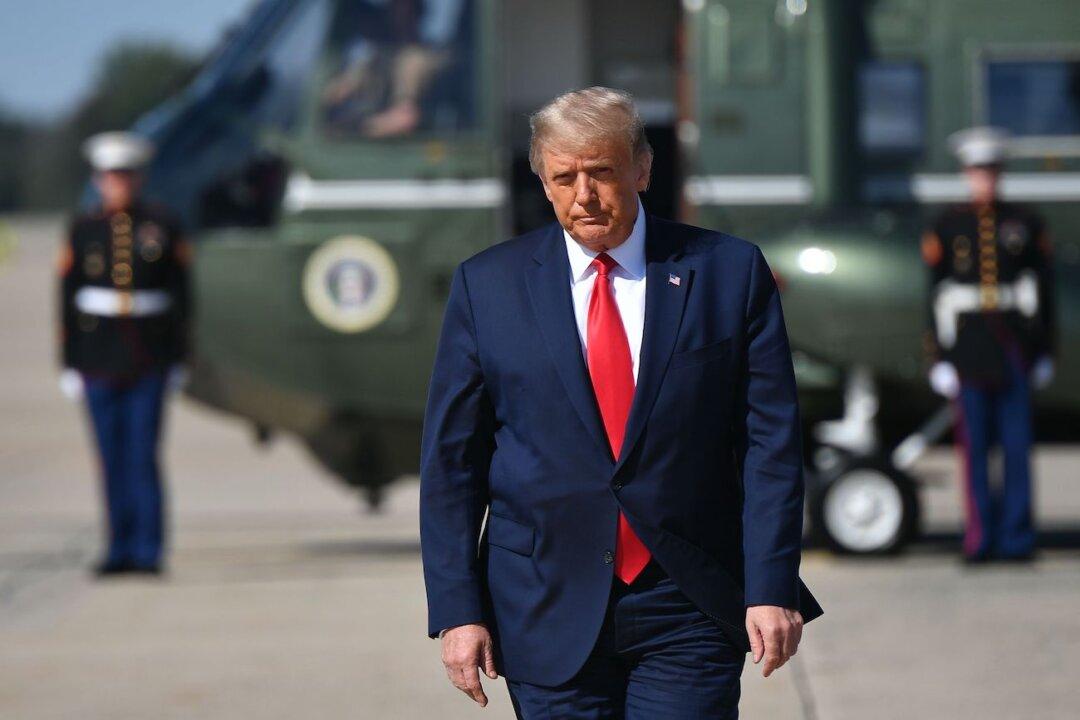President Donald Trump signed a stopgap spending bill in the early hours of Thursday to extend government funding through to Dec. 11, averting a government shutdown as the new fiscal year began at midnight.
The bill was approved in the Senate by a bipartisan 84-10 vote late Wednesday. Trump signed the bill shortly after returning from a campaign rally in Duluth, Minnesota.




